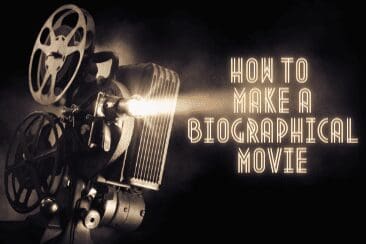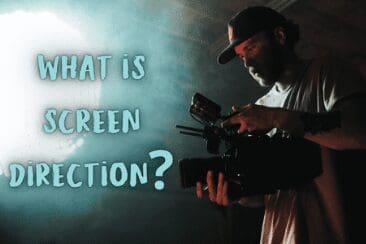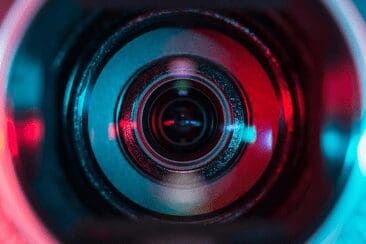Have you ever found yourself wondering how to make a successful documentary interview? Then you’re not alone – many filmmakers want to get the most out of their documentary interview questions, and interview subject, as this will ensure that your film hits the mark!
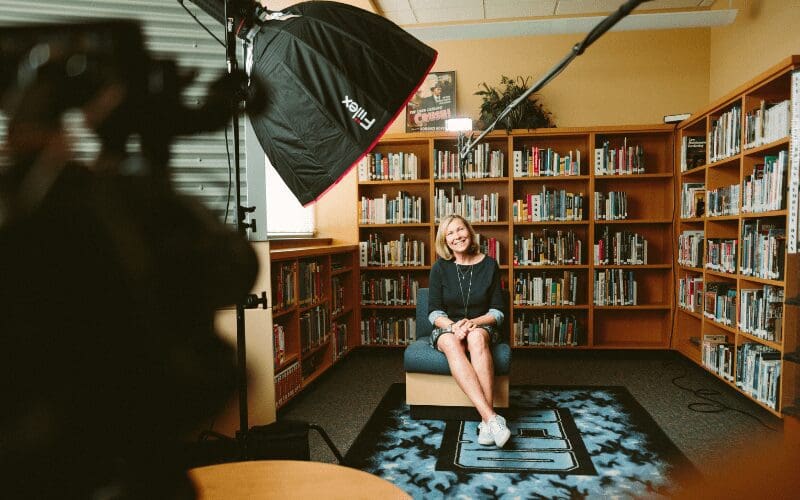
This should come as no surprise, as documentaries are becoming super popular to watch, particularly on streaming services like Netflix and Amazon.
So, consider this article your helpful guide to different documentary interview styles. Let’s dive into everything you need to know.
The Importance Of A Documentary Interview
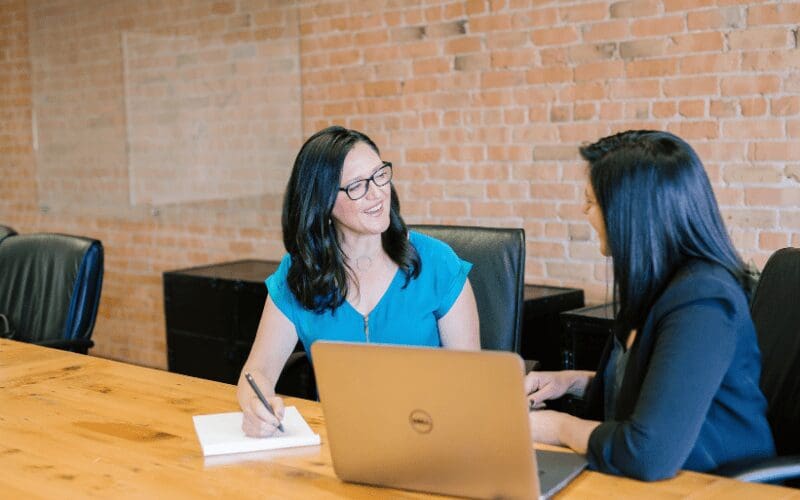
So, what are the benefits of a documentary interview? It’s very simple – an interview (or interviews) is able to add a more personal aspect to your documentary, and they are good for presenting opposing sides of an argument or different opinions.
They can also contribute vital facts and information in a simple way for the audience to understand.
Of course, the interview has to be conducted in a professional manner, and the right documentary interview questions have to be asked for it to be classed as a success.
How Do You Prepare Documentary Interviews?
We think you will agree that preparation is vital for a successful interview -you should never just wing it!
You want to make the person you’re interviewing feel comfortable enough to share their personal experiences and opinions with you.
Keep reading for our top tips!
Consider Your Documentary Interview Backdrop
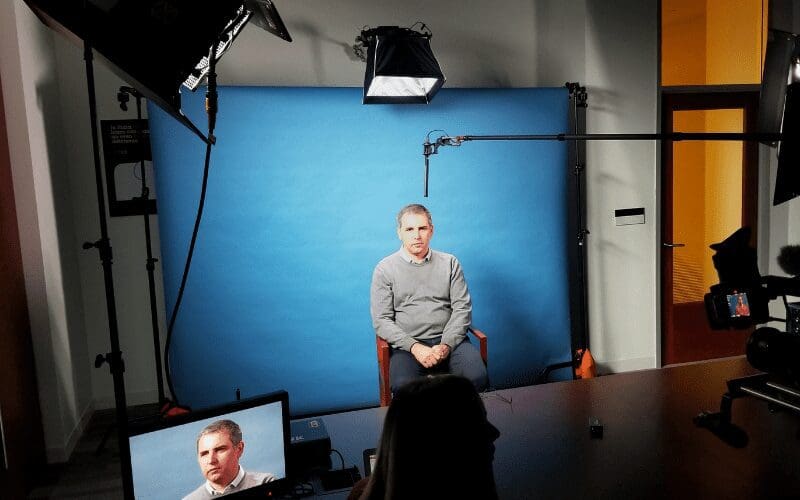
It’s so important that you make sure your documentary interview backdrop is going to look good on camera.
This includes the lighting, any props, or what will be in the background. You should discuss this with your director or cinematographer, as their opinions will be invaluable.
This is an important step in preparing for a documentary interview, as it will allow you to put the focus on what really matters – getting a good interview.
Conduct A Pre-Interview
Conducting a pre-interview is always a good idea, as it allows you and the subject to get used to the interview style.
What’s more, it ensures that there won’t be any surprises on either side, in terms of questions or setting.
Therefore, you should ensure that you have prepared your documentary interview questions beforehand.
Consider The Placement Of Your Camera
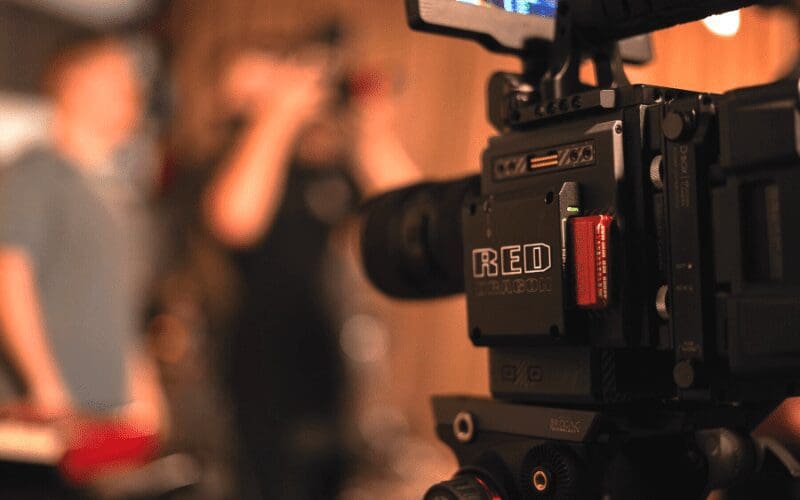
It’s important that you choose the placement of your camera angles. You need to decide whether you will just use one, or change them up.
For example, you can have a wide shot, medium shot, or a close-up shot.
Different shots and angles can help you to tell the story, so consider what will look good beforehand.
Documentary Interview Release Form
Make sure that you have a documentary interview release form. This will give the filmmaker the rights to film people for the film project, and also use the footage in the finished film.
It will also let you edit the footage that you record, as long as you don’t alter the facts.
How To Conduct Documentary Interviews
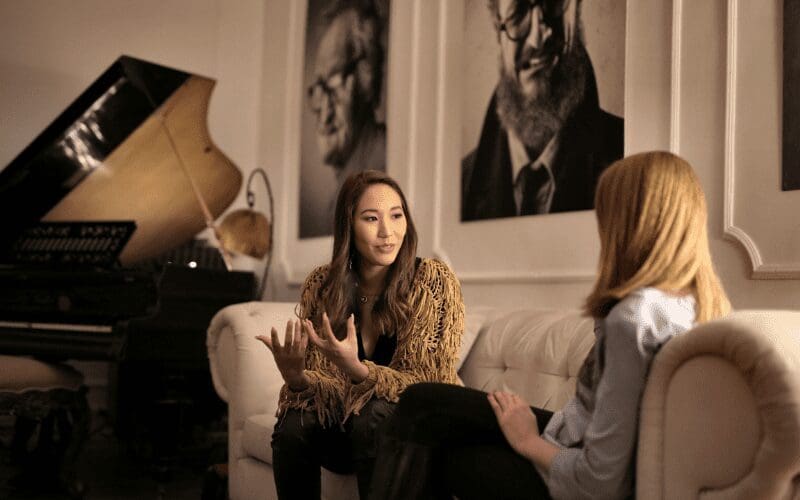
Now it’s time for a step-by-step guide on how to conduct a documentary interview.
There are different documentary interview styles, so keep reading to discover what they are!
Begin With The Basics
It’s a good idea to ask some warm-up documentary interview questions that the interviewee will easily be able to answer.
These could be simple questions about themselves, like their work background or where they live. This will help them to get comfortable.
Be A Little Spontaneous

While you should definitely come prepared to the documentary interview, you should also be able to play off their answers. This could take the interview in another direction.
It’s important that the interaction doesn’t look forced, just let the interview flow naturally. You can always return to your list of questions later.
Stay Away From Closed Questions
You want to phrase your questions to get the most out of their answers. After all, it will end up being a fairly boring interview otherwise! Plus, you won’t have much content to edit.
Ask your interview subject how they feel about a certain situation or event, this way they can explain their feelings clearly.
Leave Room For Pauses
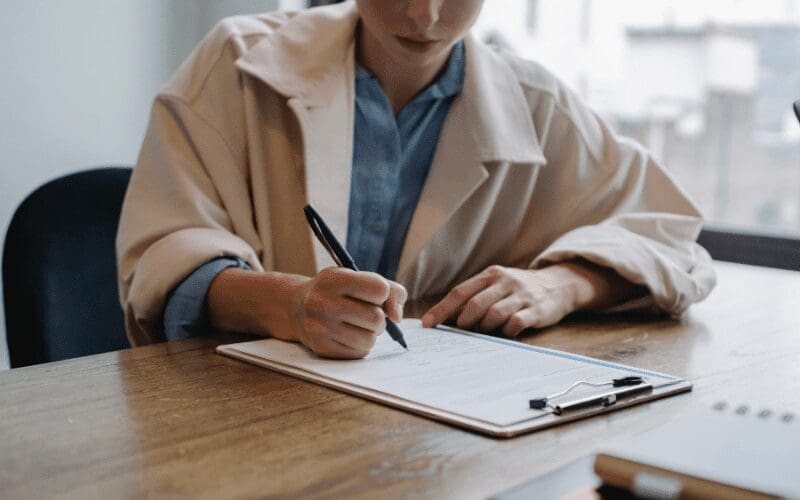
Even though you may find pauses or silences uncomfortable, you should allow them to occur.
This allows the subject to think clearly about their answers, and they may be trying to remember something important.
This could lead to you missing out on vital pieces of information. So, remember – keep quiet!
Empathy
Being empathic is so important during a documentary interview. You need to consider if your interviewee feels uncomfortable sharing certain things, and know when to push and when not to.
If you still think it’s a good idea to continue with that line of questioning, then consider relating to them with a similar experience of your own. This will help them to feel comfortable and less judged.
Use Sensory Metaphors

People tend to speak in sensory metaphors. The three types are: auditory, visually, and kinaesthetically.
For example, ‘you are running away from the truth’ or ‘we seem to be going in different directions.’
Repeat Their Own Words Back To Them
This is a great way of getting more information and ensuring that everyone (including you) has understood their response to a question.
This can also help the documentary to continue if you have hit a bit of a drypoint with your questions.
Keep Filming At The End Of The Interview
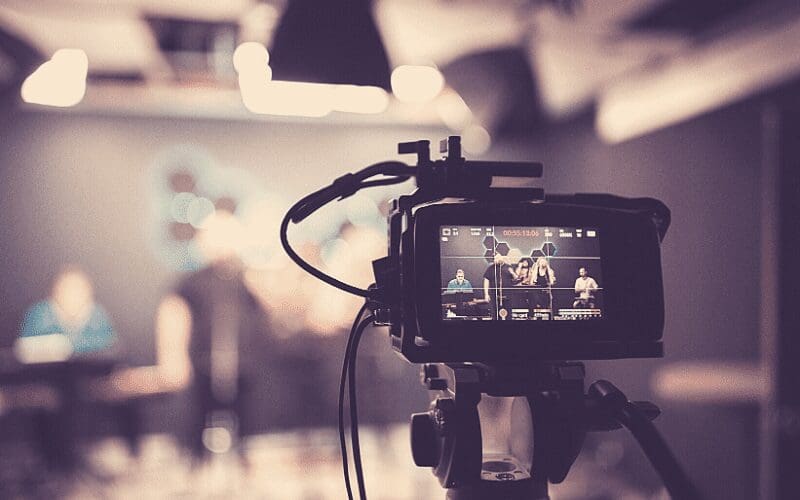
Don’t just turn the camera off when you’ve completed the interview. The subject will now likely feel relieved and less pressured to answer your documentary interview questions.
This is where you could get some footage of them truly relaxed. Many documentaries also have the credits on the screen during this last bit of footage, as it leaves the film on a light-hearted note and a feeling of closure.
Famous Documentaries
My Octopus Teacher (2020)
The documentary “My Octopus Teacher” follows filmmaker Craig Foster’s friendship with an octopus in a cold underwater kelp forest near Cape Town, South Africa, and explores the surprising bond between the two. It has become a breakout hit and has the potential to change the way people view seafood.
McQueen (2018)
McQueen (2018) is a documentary film about the life and career of British fashion designer Alexander McQueen. The film explores his rise to fame in the fashion industry, his personal struggles, and his legacy after his untimely death in 2010. It features interviews with family members, friends, and colleagues, as well as archival footage of McQueen’s runway shows and behind-the-scenes glimpses of his creative process.
Jane (2017)
“Jane” is a 2017 documentary film that tells the story of Jane Goodall, a renowned primatologist and conservationist. The film features previously unseen footage of her early work with chimpanzees in Tanzania in the 1960s, as well as interviews with Goodall and her colleagues. It was directed by Brett Morgen and received critical acclaim for its intimate portrayal of Goodall’s life and work.
Won’t You Be My Neighbor (2018)
“Won’t You Be My Neighbor?” is a 2018 documentary film about the life and career of Fred Rogers, the creator and host of the children’s television program “Mister Rogers’ Neighborhood.” The film explores Rogers’ philosophy of kindness, empathy, and compassion, as well as his impact on generations of children and adults. It was directed by Morgan Neville and received critical acclaim upon its release.
Summary – Conducting A Documentary Interview
So, there we have it – everything that you need to know about how to conduct a documentary interview!
Preparation is key, as it’s vital that you decide on your interview questions for the documentary interview beforehand, as well as consider the documentary interview backdrop.
Remember to make sure that your interview subject is comfortable and that you have a good rapport, as this will make for a much more successful interview and film!
We hope that you enjoyed this article! If you have any tips that we may have missed, leave them in the comment section below. Also, be sure to share this article on your socials and tag us @musicgateway!
Are you interested in learning more about the filmmaking industry and how Music Gateway can help you?
Then please use this link to get in touch with us to discuss any opportunities such as Sync Licensing, Music Licensing, Music Clearance, Sync Libraries or Music Libraries, etc., you may want to take further.
You can book a call with Sam – Head of Sync Licensing – as a potential lead. We are always happy to talk to musicians like you. Please do get in touch.











